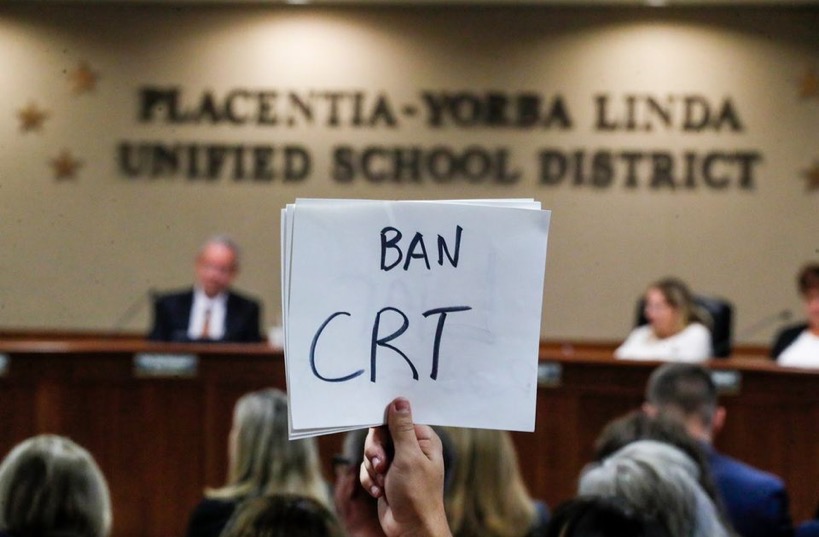By: Kaitlin Garza
FAYETTEVILLE, Ark. (UATV) – Gov. Sarah Huckabee Sanders has signed an executive order to prohibit indoctrination and critical race theory from being taught in schools.
Signed on her first day in office, Jan. 11, the new order establishes that the state education department take further measures to alter current curriculum plans and materials that possibly indoctrinate students with teaching ideologies like CRT.
The order also promotes educators to refrain from teachings that “conflict with the principle of equal protection under the law or encourage students to discriminate against someone.”
Sanders’ aim for the ban is to maneuver schools to focus more on students’ math and reading skills as opposed to exposing children to left-wing political agendas.
Sanders also claims that ideologies being taught in schools such as CRT, are teaching young students to hate America or believe it is a racist and evil country.
Jacob Warren, a Curriculum and Instruction doctorate student at the UA, has been an educator for nearly thirteen years and said however, that CRT is not taught in K-12 schools.
“Politicians here would say that critical race theory just teaches students that all white people are bad,” Warren said, “But the actual definition of critical race theory doesn’t say that.”
Originally established as a legal theory, Warren said CRT was a framework for approaching American history and understanding racial inequity.
CRT also studies why systematic racism exists and how Black people are treated differently through both the court systems and throughout history.
“You can imagine if that’s important for American society as a whole,” Warren said, “It would be important to study in education.”
According to Warren, CRT is a response to the historical issue of inferior Black schools and students and provides future educators with approaches to better educate and understand students from marginalized groups.
“Critical race theory would say that white educators should do better, but there’s nobody that’s teaching white students that they’re bad for being white,” said Warren.
Warren also said the CRT ban may stem from Republican representatives in Arkansas who have long wanted to defund public schools. Returning the idea of “school choice” back into the hands of families, which he fears will hurt both schools and educators.
“If you can say, that school is practicing critical race theory or that professor teaches critical race theory,” Warren said, “Then you can take their job away and you can take money away.”
Early childhood education major, Kenzie Lumpkin, is wrapping up her fifth year of school and plans on becoming a full-time teacher soon, but the current fight against CRT makes her anxious for what’s to come.
“Other teaching terms like, Socio-emotional learning and Diversity, Equity and Inclusion learning are all under fire by politicians right now,” Lumpkin said, “I know I want to teach kids but I don’t know how to do that without being able to even teach them about diversity.”
The future of education, Warren said, is at the hands of politicians who he hopes will one day realize that CRT is not a theoretical idea children are learning in school.
“I’m also hopeful though because at the Department of Education here, we have a lot of really smart people here,” Warren said, “People who care about students, who care about raising the next generation of teachers and who care about looking out for one another.”


